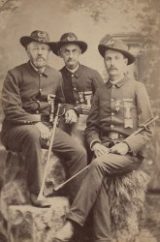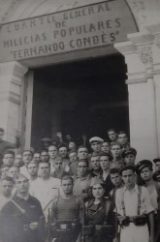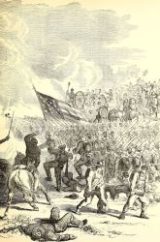Best Russian Civil War Books
| Photo | Title | Rating | Length | Buy |
|---|---|---|---|---|

|
History of the Russian Revolution | 9.58/10 | 1040 Pages | Check Price On Amazon |

|
Ten Days That Shook the World | 8.94/10 | 400 Pages | Check Price On Amazon |

|
Through the Russian Revolution | 9.16/10 | 368 Pages | Check Price On Amazon |

|
Year One of the Russian Revolution | 9.76/10 | 456 Pages | Check Price On Amazon |
Accurate Account
The best Russian Civil War books seem to be those that are personal eyewitness accounts. These four authors, two American and two Russian, manage through their prose to give an accurate historical account of the Russian Revolution at the same time as bring history to life by writing their own personal experiences within it.
All of them are pro the Revolution, as any just person would have been against that most unjust and corrupt system endured by the suffering Russians at the time.
History of the Russian Revolution by Leon Trotsky

 Democratic Revolution?
Democratic Revolution?
Hailed as one of the best books written on the Russian Civil War, History of the Russian Revolution is actually the amalgamation of three volumes: The Overthrow of Tsarism, The Attempted Counterrevolution, and The Triumph of the Soviets.
This celebrated book is all about the year 1917 in Russia, the beginning of the year in which the monarchy still ruled, and by the end a complete revolution had succeeded, and the renowned politician and thinker, Leon Trotsky, shows that its success was due to the revolution being deeply democratic by nature.
Full of Hatred
Trotsky explains what makes a nation ripe for revolution and explains the ripeness of Russia for exactly that in 1917. He makes no attempt to hide his hatred for the ruling Romanovs describing their power with much venom.
He is a deeply biased author, but still he is credited with the amazing scholarly work written with the pen of a master. Trotsky, himself a revolutionary who had massive impact on Russian politics for decades, then starts a very detailed account of the period from February right through to October when the Bolsheviks came to power.
Fairly Biased
He lists many parties and personalities assuming some prior knowledge, which can be cumbersome. He gives a fascinating account of Lenin, who had died at the time of writing, and Stalin who he believed was not adhering to the aims of the revolution.
Celebrated for its honesty and much enjoyed for its insider knowledge, History of the Russian Revolution is criticized for being obviously over-biased with an agenda, and with a pen that writes with dullness about facts, and writes with biased passion about opinion.
Ten Days That Shook the World by John Reed
 Descriptive and Atmospheric
Descriptive and Atmospheric
As a Communist sympathizer Reed writes with much enthusiasm about the October Revolution in Ten Days that Shook the World. True to form as an American reporter, his account of the civil war is highly descriptive and atmospheric, as he describes the atmosphere of the Revolution, and the palpable feeling of imminent unrest in the streets.
However, the book swings between fascinating description to boring lists of committees and parties which made up so much of the complex political landscape of Russia at the time.
Intense Passion
Ten Days That Shook the World is actually Reed’s personal account of this time, as he was reporting for a newspaper in Russia during this period, so it is of course filled with bias, and too many lists, and is interspersed with great moments of intense passion.
The Bolsheviks’ rise to passion is explained beautifully by Reed and he writes of the effects of the Revolution, of the quest for knowledge and reading and literature that the Revolution inspired. Sadly, the naïve euphoria of those early revolutionary days that Reed writes about did not last, and the aims of the Bolsheviks were thwarted or twisted as the Soviets rose, and a very difficult period of history, the Russian Revolution, began.
Through the Russian Revolution by Albert Rhys Williams

 Personal Account
Personal Account
Albert Rhys Williams was an American writer and journalist who during the World War I met Lenin. He was much inspired by Lenin and the ideals and aims of the Bolsheviks and the aims of the Russian Revolution and travelled there and became an eyewitness of it himself.
As an American he was horrified that his then-president attempted to quell the Bolsheviks, and he wanted to do what he could to help due to the shame he felt. His book Through the Russian Revolution is his eyewitness account.
Despicable State
The author describes the despicable state of Russia prior to the Revolution in all its aspects, social and economic and moral. Russians by the millions starting to die as the upper class dealt in dishonesty and corruption. The poor could no longer sustain their acquiescence and the Revolution was born.
It is said that the history is accurate and description of this time period very intimate since he was an eyewitness and a very keen and informed one at that, and is an excellent source to understand this time period. However it is criticized for not being very well written.
Year One of the Russian Revolution by Victor Serge

 Decadent Wealth
Decadent Wealth
Author Victor Serge was a Russian revolutionary who returned from Europe to his homeland at the time of the early revolution. He joined the Bolsheviks, living in Petrograd and worked as a journalist and writer. His work Year One of the Russian Revolution is his own personal account.
The book describes the decadent wealth of the ruling family and their injustice: how the Jews were massacred, and demonstrators were killed, and how the landlords controlled the serfs who were virtually starving. It is acclaimed as a very accurate historical account and detailed. From this unacceptable and corrupt state of affairs he describes how the Revolution began and took shape.
Only Choice Left
Interestingly Serge was not a Bolshevik when he arrived at that fateful time in Russia, but on looking at all sides he felt the only upright cause of action was to support the Bolsheviks. He was not a man who intrinsically liked violence, but he felt he must succumb to the seemingly inevitable fact that sometimes some violence is necessary in the name of justice and in the face of a greater more evil violence.
Serge was a wise man and wasn’t so zealous that he couldn’t see the faults of the Bolsheviks, and he wrote of both their qualities and faults, with beautiful prose that is much praised, with as much fairness as he could. Still, his deep mind took the conclusion that siding with the Bolsheviks was the answer for Russia.
Inevitable Revolution
These best books of the Russian Revolution prove that the revolution was inevitable: the reigning monarchy were corrupt and their people starving. It was only a matter of time that a huge sway of revolt would cross Russia and sweep in a system that attempted to be just, that would give rights and justice to the poor in a fair system.
These best Russian Civil War books all written as eyewitness accounts, firmly support the Revolution, but the question would be whether the Bolsheviks went about it, and implemented a communism, in the right way. One wonders, if any of these four authors had been alive now, whether they would have said that the Bolsheviks, with their Communist ideals, got it right.
Michael Englert
Michael is a graduate of cultural studies and history. He enjoys a good bottle of wine and (surprise, surprise) reading. As a small-town librarian, he is currently relishing the silence and peaceful atmosphere that is prevailing.





